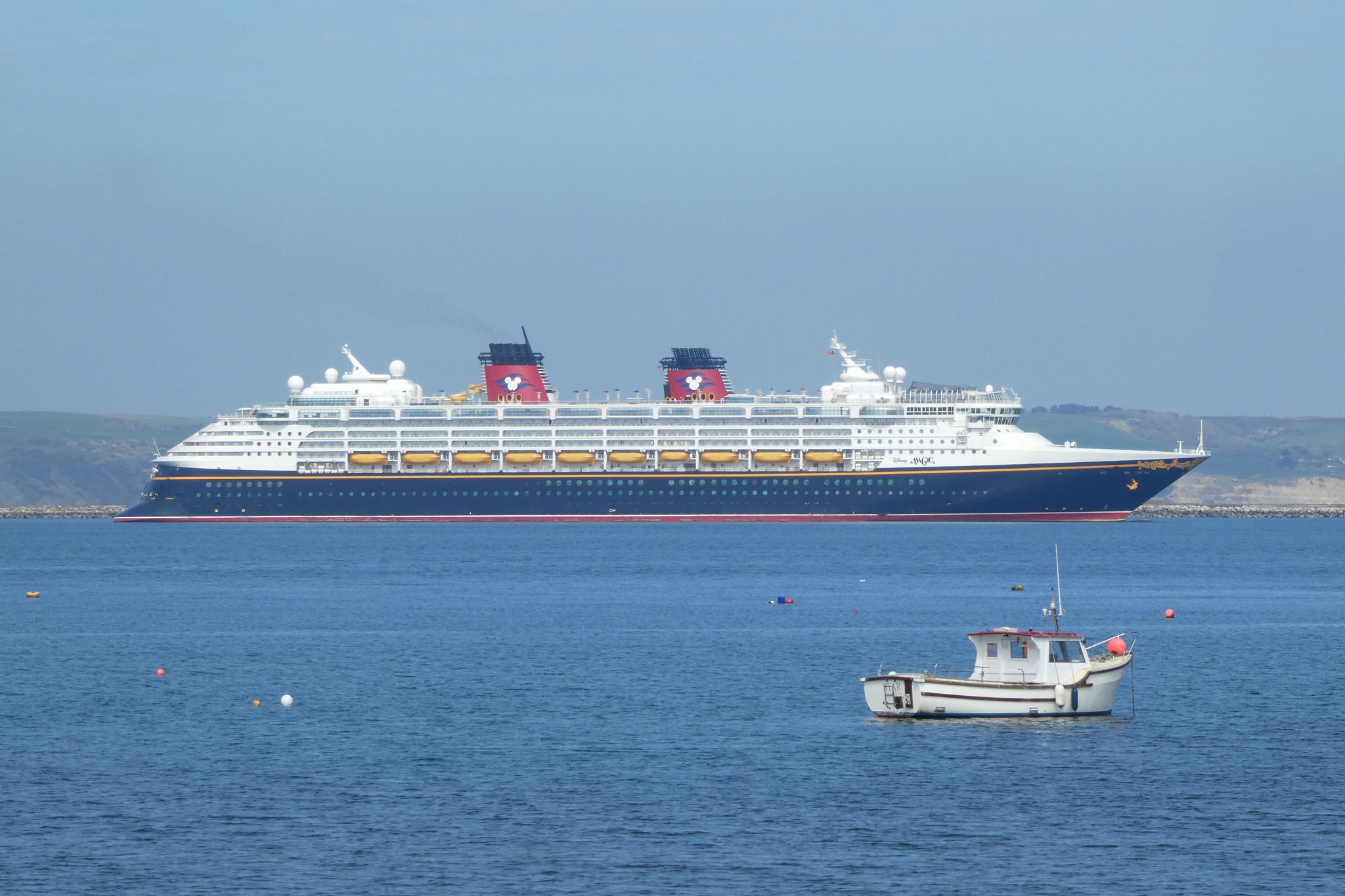Top photo: The Disney Magic is seen anchored at Portland Harbour in Dorset, England, in April 2021. (Photo: Andrew Bone / Flickr)
Welcome to Factal Forecast, a look at the week’s biggest stories and what they mean from the editors at Factal. We publish our forward-looking note each Thursday to help you get a jump-start on the week ahead. If you like what you see, you can subscribe for free.
A look ahead:
Sept. 3/ Disney Cruise Line mandates vaccines on Bahamas ship: Anyone age 12 and up wanting to cruise to the Bahamas will need to be fully vaccinated against coronavirus starting Friday, according to Disney Cruise Lines.
- What’s happened so far: The Walt Disney Company’s cruise division said passengers will need to show proof of vaccination before boarding in order to comply with The Bahamas’ requirement that all passengers ages 12 and older be fully vaccinated for a ship to be allowed into any of its cruise ports, including private islands. Passengers under age 12 will be required to show proof of a recent negative coronavirus PCR test.
- The impact: Before the Delta variant led to a new surge in coronavirus cases, the cruise industry was seeing a welcome increase in demand. Just how much impact the Delta variant will have on cruises remains to be seen. However, with about 38 percent of the U.S. population ages 12 and older still not fully vaccinated and the Bahamas requiring vaccination for entry, cruise operators now have fewer prospective customers than they were hoping for.
Sept. 3/ Russian diplomats asked to leave U.S.: Two dozen Russian diplomats will be forced to leave the United States on or before Friday after their visas expire, the Russian ambassador said in an interview.
- What’s happened so far: The United States denied the ambassador’s claims that the maneuver was to retaliate against Moscow, with State Department Spokesperson Ned Price saying the diplomats can apply for a visa extension. Russia, meanwhile, is claiming all of the diplomats will depart without replacements after Washington allegedly tightened visa procedures abruptly.
- The impact: The expulsion of the Russian diplomats deepens a visa row between Moscow and Washington that has been ongoing for years. Most recently, Russia drew Washington’s ire after Moscow ordered the United States to stop employing Russians, forcing the embassy and consulates to slash 75 percent of staff. Both countries also expelled 10 diplomats each earlier this year following additional sanctions on Moscow. The visa row presents another front of tension between the two countries, whose relations have continuously spiraled since the 2014 annexation of Crimea and introduction of broad western sanctions on Russia.
Sept. 5/ Tokyo Paralympics closing ceremony: The Paralympics will hold its closing ceremony on Sunday without spectators, ending more than a month of events, including the Olympics, that brought people from all over the world to Japan’s capital city amid a global pandemic.
- What’s happened so far: Both the Olympics and Paralympics encountered some coronavirus cases, but no major outbreaks were directly associated with the games. Meanwhile, coronavirus cases in Japan reached an all-time record high for the country, peaking mid-August as the Paralympics were set to begin. The number of serious cases requiring in-patient care continues to rise. Most of the country remains under some state of emergency related to the pandemic.
- The impact: Elections are coming up in Japan, both a general election and a leadership election likely to precede it within the country’s ruling Liberal Democratic Party. With the Japanese public frustrated by the government’s coronavirus response and critical of the Olympics and the Paralympics, it remains to be seen how the government’s handling of the games will affect polling. Officials continue to say they do not see a correlation between the games and the rise in cases.
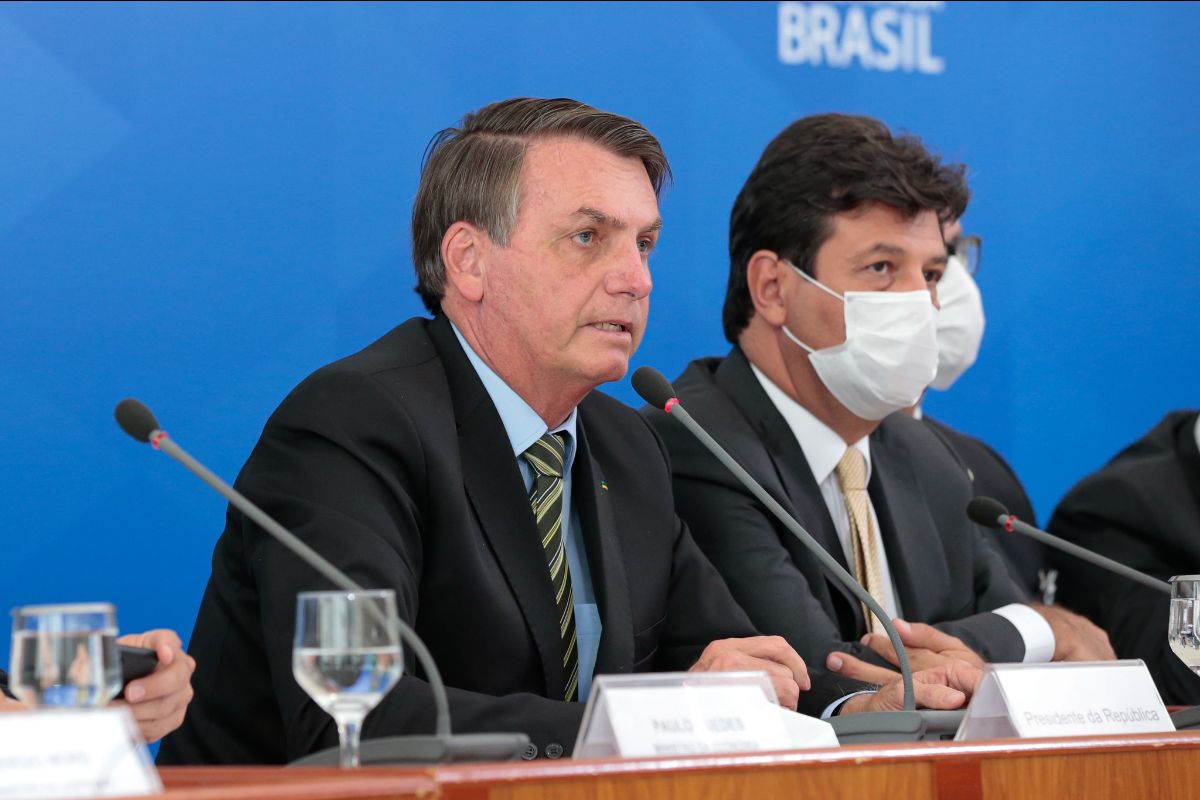
Sept. 7/ Nationwide marches in Brazil: Brazilian President Jair Bolsonaro is calling for his supporters to take to the streets on Tuesday amid a corruption investigation that may lead to his removal from office.
- What’s happened so far: Bolsonaro was elected in 2018 after campaigning as an anti-corruption outsider. Throughout the coronavirus pandemic, his administration has been accused of downplaying the severity of the disease, despite the fact it killed more than half a million Brazilians. Over the summer, a congressional probe into Bolsonaro’s handling of the pandemic uncovered a vaccine purchasing scandal after the government spent months haggling over drug prices before purchasing an unapproved vaccine from India for more than 10 times the price that was originally quoted. In wake, the country’s Supreme Court authorized a criminal investigation into Bolsonaro.
- The impact: Bolsonaro has been inflaming his supporters by instilling doubt in the court and the electoral process ahead of next year’s elections. The president promised his supporters won’t be violent in the upcoming marches, but it’s unclear if that will remain the case. Supreme Court Justice Ricardo Lewandowski already warned Bolsonaro or any supporters not to attempt a coup on that day.
Sept. 9/ First game of 2021 NFL season: The National Football League will kick off its 2021 season next Thursday as the Dallas Cowboys travel to Tampa, Fla., to face the defending Super Bowl champion Buccaneers.
- What’s happened so far: All 32 NFL teams have confirmed they will operate at full capacity this coming season, representing a marked shift from last season when numerous teams went the entire season without allowing any fans. While some teams are opening stands only to vaccinated fans, others have no restrictions on spectators. As for players, the NFL maintains it is open to a vaccine mandate for all of those on rosters, though the NFL Players Association has upheld its opposition to a mandate, instead pushing for a return to 2020’s daily testing for all players regardless of vaccination status.
- The impact: While the NFL operated with flexibility regarding rescheduling games amid coronavirus outbreaks last year, it is being more rigid this year, advising that teams will risk forfeiting games if there is an outbreak among unvaccinated players. As for fans, it remains to be seen how the surging Delta variant will affect full-capacity stadiums. A comprehensive peer-reviewed study of the 2020 season found correlation in a surge in local infections in the weeks following NFL games with over 5,000 fans in attendance.
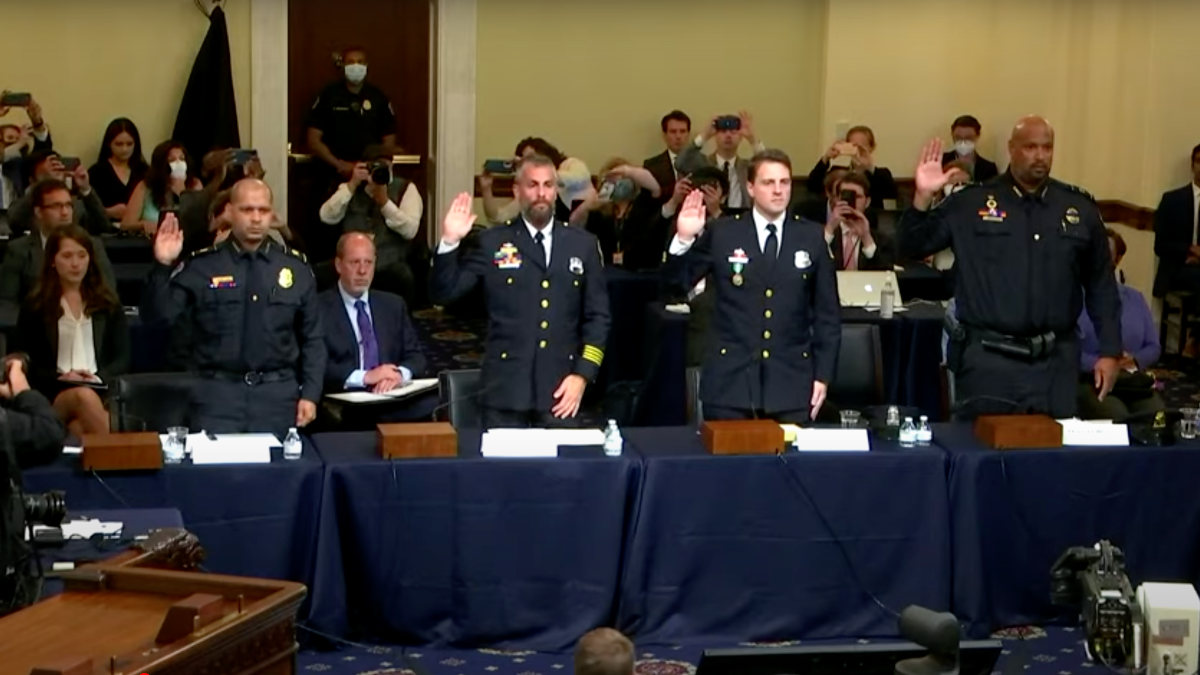
before the House panel investigating the incident. (Photo: January 6th Committee / YouTube)
Sept. 9/ U.S. House committee subpoena deadline: Eight U.S. federal agencies have until Thursday to release a trove of documents relating to the Jan. 6 Capitol riot after receiving subpoenas from the House committee investigating the incident.
- What’s happened so far: After a protracted establishment process, the House committee held its first hearing July 27 in relation to the Capitol insurrection and issued its first round of subpoenas on Aug. 26. In this initial round of requests, it is seeking communications records from former President Donald Trump’s White House, including details of the events before and on Jan. 6 and information on attempts to overturn the 2020 election results. The committee also reportedly sent letters to 35 private-sector companies, including social media networks, requesting they preserve the records of Trump, his family and GOP lawmakers who attended or endorsed the “Stop the Steal” rally preceding the insurrection.
- The impact: It’s unclear whether any of the information the committee is seeking will be released by the deadline. While the Biden administration said it will not draw on executive privilege to prevent former officials from testifying as part of the investigation, it’s not clear whether this pledge extends to the release of documents. Trump could also launch legal proceedings to block the subpoenas, which would likely lead to a drawn-out court battle. The scale and scope of the subpoenas could make it difficult for federal agencies to deliver the requested documents.
Sept. 10/ Denmark lifts all coronavirus restrictions: Denmark is set to lift all domestic coronavirus-related restrictions beginning next Friday.
- What’s happened so far: The Danish government decided not to extend the categorization of coronavirus as a “socially critical disease,” in place since March 2020. This categorization gave the government power to introduce special restrictions, including closure of buildings, assembly bans and coronavirus vaccine passport requirements. In a news release, Danish Minister of Health Magnus Heunicke said the pandemic is “under control” due to high vaccination rates, adding that, despite being in a good place, “the government will not hesitate to act quickly” if things change. More than 70 percent of the Danish population is now fully vaccinated.
- The impact: Though many restrictions were slowly lifted over the past few weeks, proof of vaccination or a negative test is still required to enter many public places. After the Sept. 10 downgrade of the coronavirus classification, proof of vaccination or a negative test will no longer be required.
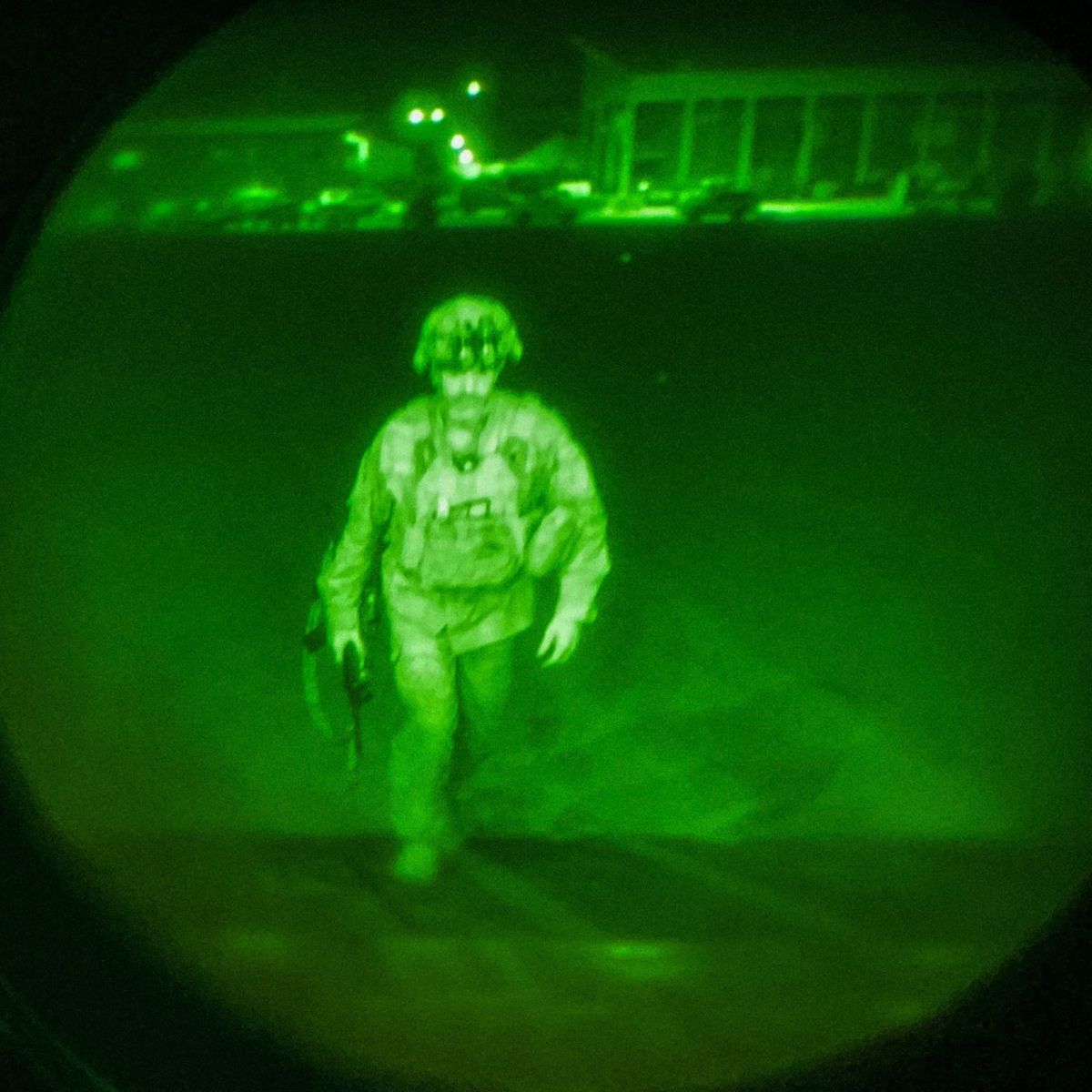
What else matters:
Taliban rule begins in Afghanistan: The last U.S. planes left the airport in Afghan capital Kabul earlier this week, concluding 20 years of military presence in the country and closing a chapter of history that ended with a chaotic and deadly evacuation process for U.S. service members and Afghan civilians. According to the White House, American forces helped evacuate more than 120,000 U.S. citizens, foreigners and Afghans, while coalition forces also transported their citizens and Afghans. Not all who wanted to go were evacuated, though diplomatic processes will continue to ensure safe passage for Afghans and foreign nationals who wish to leave.
- Watch for: Afghanistan is vastly different from the country the Taliban last ruled in the late 1990s and the new rulers now face critical challenges with an economy devastated by war and corruption despite billions of dollars in aid over the past two decades. Nearly half the population needs humanitarian assistance to survive with basic services at risk of completely collapsing, according to the United Nations. Though the group has attempted to set a more conciliatory and tolerant note, its first big test will be the formation of a new government — and whether it will genuinely be inclusive. On the security front, the group faces the threat of local Islamic State affiliate ISIS-Khorasan, which was responsible for a suicide bombing in Kabul last week that killed nearly 170 Afghans and 13 U.S. military personnel.
Caldor Fire near California’s South Lake Tahoe:The expected containment date for the more than 200,000-acre Caldor Fire has been pushed back to Sept. 13, with at least 556 homes destroyed as of Wednesday morning, according to Cal Fire. Three first responders and two civilians have been injured since the blaze broke out on Aug. 14 near Grizzly Flats in California’s El Dorado County and the flames prompted an evacuation for all of the resort tourist town of South Lake Tahoe (population 22,000). Both California and Nevada declared a state of emergency in an effort to mobilize resources for evacuees.
- Watch for: As of Tuesday, the fire was the 17th largest in state history, and concerns remained that windy conditions could contribute to further growth. Officials said the fire marks just the second time in recorded history that flames crossed from one side of the Sierra Nevada mountains to the other, just weeks after the first instance with the Dixie Fire. Meanwhile, almost all national forests across California are now closed through mid-September due to extreme fire conditions.
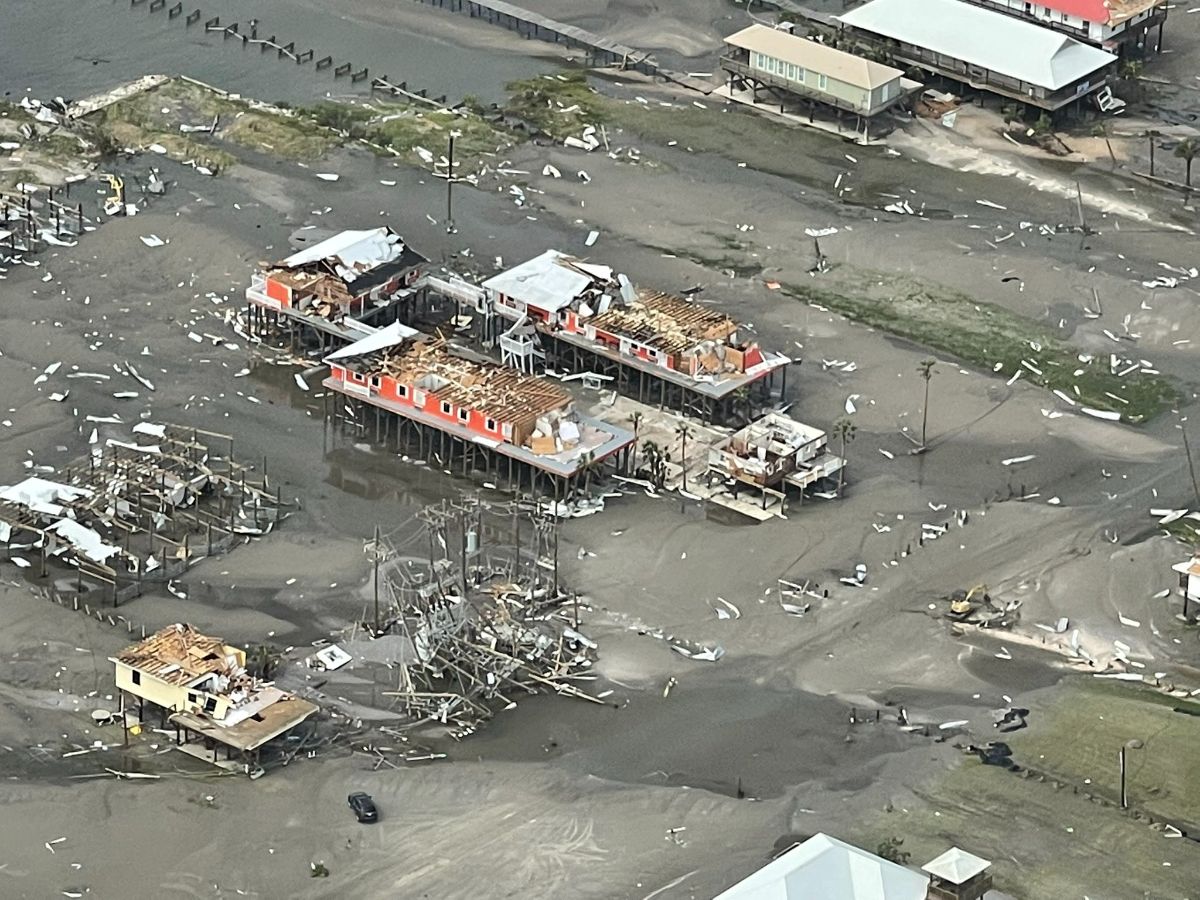
Hurricane Ida: The southern and eastern U.S. was pummeled by one of the most powerful hurricanes in years, claiming lives from southern Louisiana to New York City. At least five people were killed when Hurricane Ida made landfall near New Orleans and most of the city was left without power. Ida’s damage appears to have been largely contained compared to Hurricane Katrina in 2005, however, thanks to a $14.5 billion upgrade to the area’s levees. The storm’s remnants marched their way through the south to the Northeast, where it arrived on Wednesday and killed at least nine people in New York and New Jersey as severe flooding engulfed the tri-state region.
- Watch for: Despite the relative success of the levee system in its first major test since Katrina, rising sea levels and soil subsidence are expected to pose continued threats to New Orleans. The U.S. Army Corps of Engineers, which undertook the renovation, is proposing $1.7 billion of construction work, including raising existing barriers and building new ones to maintain the current level of protection for the city. Portions of New York’s mass transit system, the largest in the nation, remain shut down as workers move quickly to get it back online.
Extended outlook: What’s on our radar in the coming weeks
Sept. 3: New round of Venezuela talks; estimated completion date of Nord Stream 2; Disney Cruise Line mandates vaccination on Bahamas ship; Russian diplomats asked to leave U.S.
Sept. 5: Paralympics closing ceremony
Sept. 7: Nationwide marches planned in Brazil
Sept. 8: Philippines’ PDP-Laban party holds national convention
Sept. 9: U.S. House Jan. 6 committee deadline for Trump White House records; first game of 2021 NFL season
Sept. 10: Denmark lifts all coronavirus restrictions; Russian military exercises in Belarus begin
Sept. 11: 20th anniversary of September 11 attacks
Spet. 12: Pope Francis visits Budapest, Hungary
Sept. 13: Norway parliamentary election
Sept. 14: California gubernatorial recall election; Boston mayoral primary
Sept. 19: 73rd Primetime Emmy Awards; Russian legislative elections
Sept. 20: Canada snap election; U.S. to begin offering third coronavirus vaccine shots
Sept. 21: 76th UN General Assembly
Sept. 25: Icelandic parliamentary elections
Sept. 26: Haitian elections; German federal elections
Sept. 28: North Korea to convene meeting of legislature
Sept. 29: Japan’s ruling Liberal Democratic Party elections

